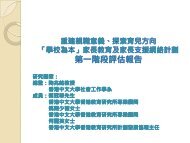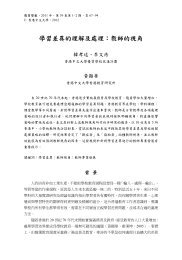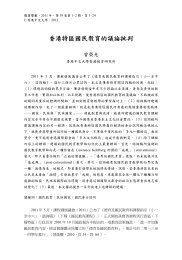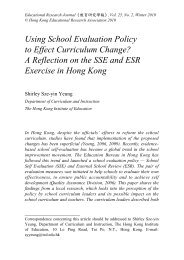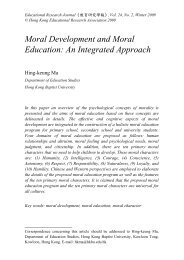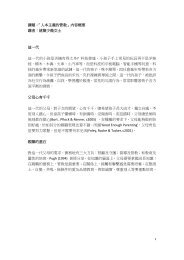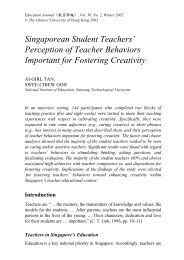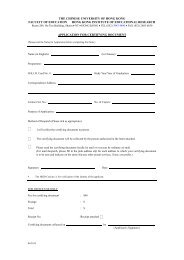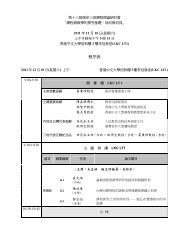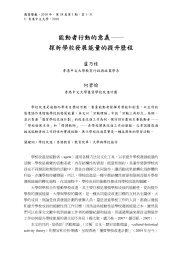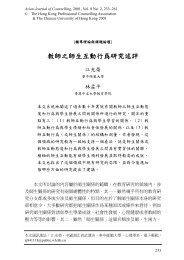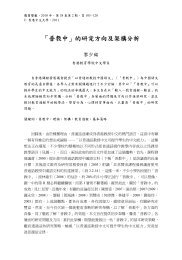Filial Therapy as a Cross-Cultural Family Intervention - The Chinese ...
Filial Therapy as a Cross-Cultural Family Intervention - The Chinese ...
Filial Therapy as a Cross-Cultural Family Intervention - The Chinese ...
Create successful ePaper yourself
Turn your PDF publications into a flip-book with our unique Google optimized e-Paper software.
Daniel S. Sweeney, Catherine Skurja<br />
toward their children and significant decre<strong>as</strong>es in parental stress. Using the<br />
same training model and me<strong>as</strong>ures, Yuen (1997) researched filial therapy<br />
with <strong>Chinese</strong> immigrant parents in Canada. <strong>The</strong> experimental group of<br />
parents showed significant improvement on all me<strong>as</strong>ures, <strong>as</strong> compared to<br />
the control group of parents.<br />
In a study of mothers of young children in Korea, Jang (2000) found<br />
that filial therapy had a positive impact on parent-child relationships. Jang<br />
suggests that the Korean culture tends to have a strong emph<strong>as</strong>is on children’s<br />
cognitive development and academic success to the detriment of emotional<br />
development. Though the training w<strong>as</strong> conducted between the mother and<br />
one child of focus, the positive results of the filial therapy generalized to<br />
other relationships within the families. Communication between parents<br />
improved <strong>as</strong> well <strong>as</strong> the mothers’ empathic responses toward nonparticipating<br />
children.<br />
<strong>The</strong> post-testing of the filial therapy training showed a less significant<br />
decre<strong>as</strong>e in parental stress level than h<strong>as</strong> been observed with other<br />
experimental groups. Jang (2000) postulated that the mothers were concerned<br />
with presenting with lower stress levels in the pre-testing which would have<br />
skewed the results. One Korean-American play therapist suggested that her<br />
native culture is so competitive that the training process could be stressful<br />
for Korean parents. She speculated that the benefits of the training may not<br />
be <strong>as</strong> apparent until afterwards when the parents are not feeling the need to<br />
be the best.<br />
In cultures where competitiveness is stressed and emotional development<br />
is subverted by academic achievement (Jang, 2000; Johnson-Powell &<br />
Yamamoto, 1997), filial therapy can be promoted <strong>as</strong> a useful tool for<br />
incre<strong>as</strong>ing overall success in children. Children who are more secure<br />
emotionally will have fewer problems behaviorally in school, thus promoting<br />
better achievement. This may correlate with children getting into better<br />
192



